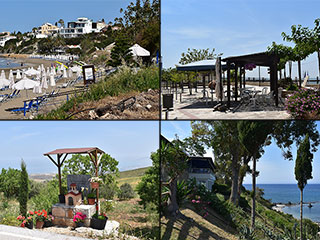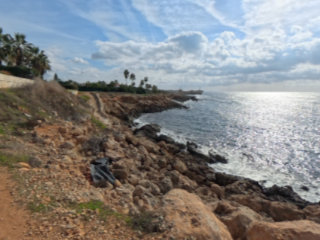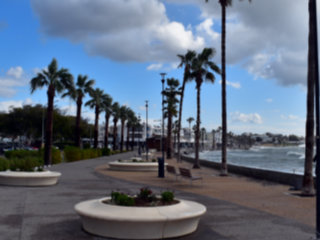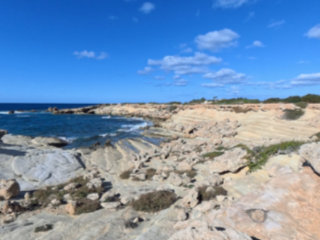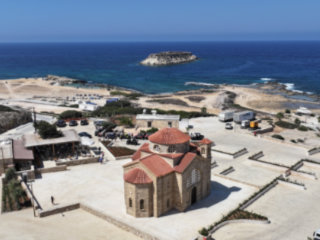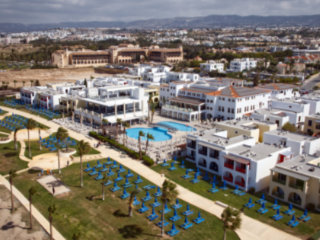Yeronisos Island
Roman Rocks
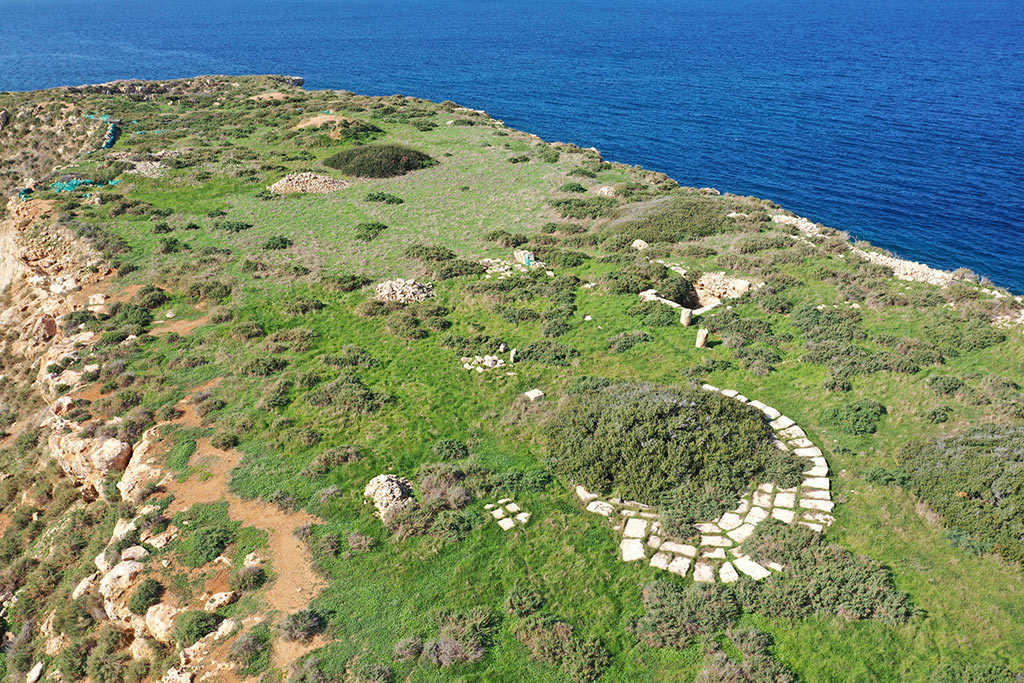
During the 2000 season, a geophysical survey was conducted under the supervision of Mr. Glen Dash using a Geoscan Research FM 36 magnetic gradiometre. During the 2002 season a preliminary underwater survey was undertaken by Dr. Jonathan Cole of Oxford University’s Institute of Archaeology.
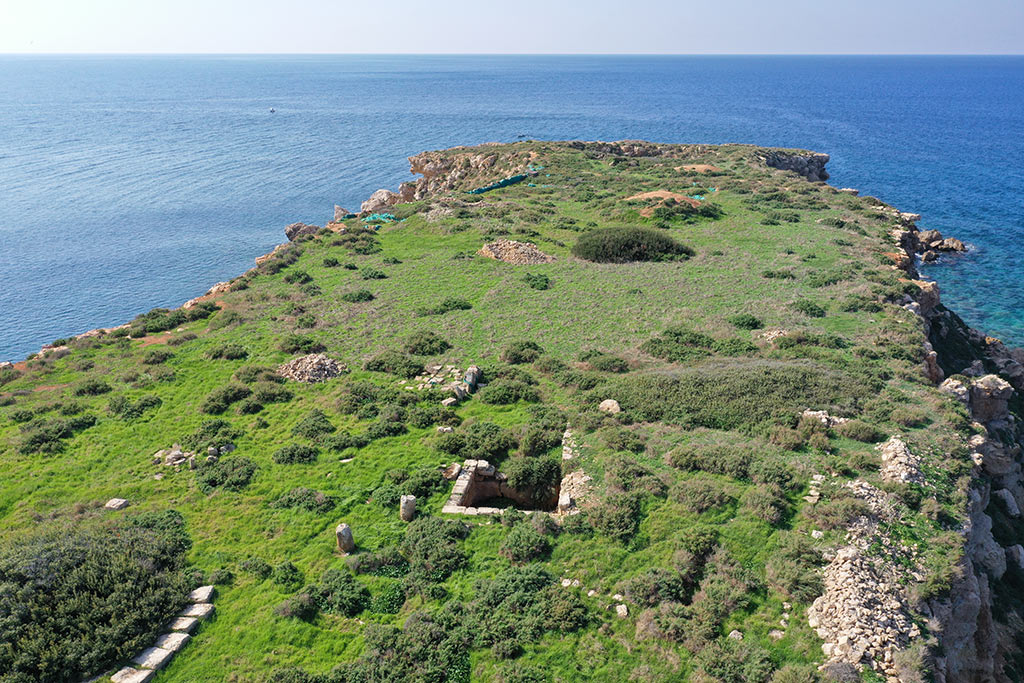
This is the last entry from the website. If you want to see a lot more photos taken by the people involved, you should definitely check it out.
Excavations on the acropolis of Agios Georgios-tis-Peyias, just opposite Yeronisos, were undertaken by A. H. S. (Peter) Megaw during the years 1952–55. Prof. Charalambos Bakirtzis has continued work at the site since the 1990’s. Here, three early Byzantine basilicas of great import have been unearthed. They are especially well known for the impressive series of mosaics that show animals specific to the surrounding eco-system: several species of fish, cuttlefish, octopus, turtles, quails, and other birds. The basilicas were built during the reign of Justinian (AD 527–565) during a time when, according to Prof. Bakirtzis, Cape Drepanum served as an important stopover port for the grain ships carrying the annona civica from Egypt to Constantinople.
More Recently...
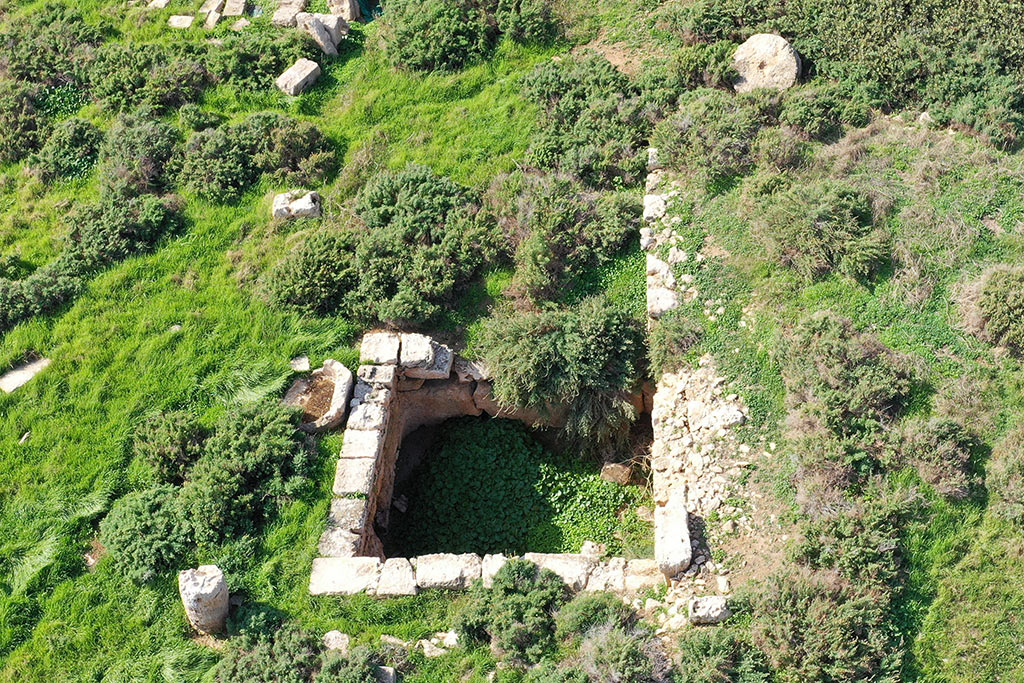
Since the last update on the website, back in 2012, the digs have continued. The last one finished only recently, as reported in Cyprus Mail:
The antiquities department announced the completion of a three-month excavation project on Yeronisos Island off the Paphos coast and Cape Drepanum, located right across the island.
The project, which was carried out in cooperation with the New York University, saw a team of archaeologists carrying out underwater and land surveys of the area, together with a coastal mapping and 3D modelling, as well as a comprehensive study of excavated materials in preparation for publication.
The project particularly focused on the ancient Maniki harbour on Cape Drepaneum, which served as the main port for accessing the ancient settlement at Ayios Georgios tis Pegeias and Yeronisos Island itself from the Hellenistic through to the Byzantine period.
According to the antiquities department, the excavation further proved that the ancient port “provided the most convenient and safe location for anchoring, loading, and unloading cargoes, as witnessed by the rock cut channels and bollards, pottery and anchors at the area.”
“While intense use is attested for the harbour during late Roman and early Byzantine times, Hellenistic pottery recovered in the terrestrial survey and stone anchors possibly dating as early as the 2nd millennium B.C. suggest that it was used as a significant anchorage from much earlier on.”
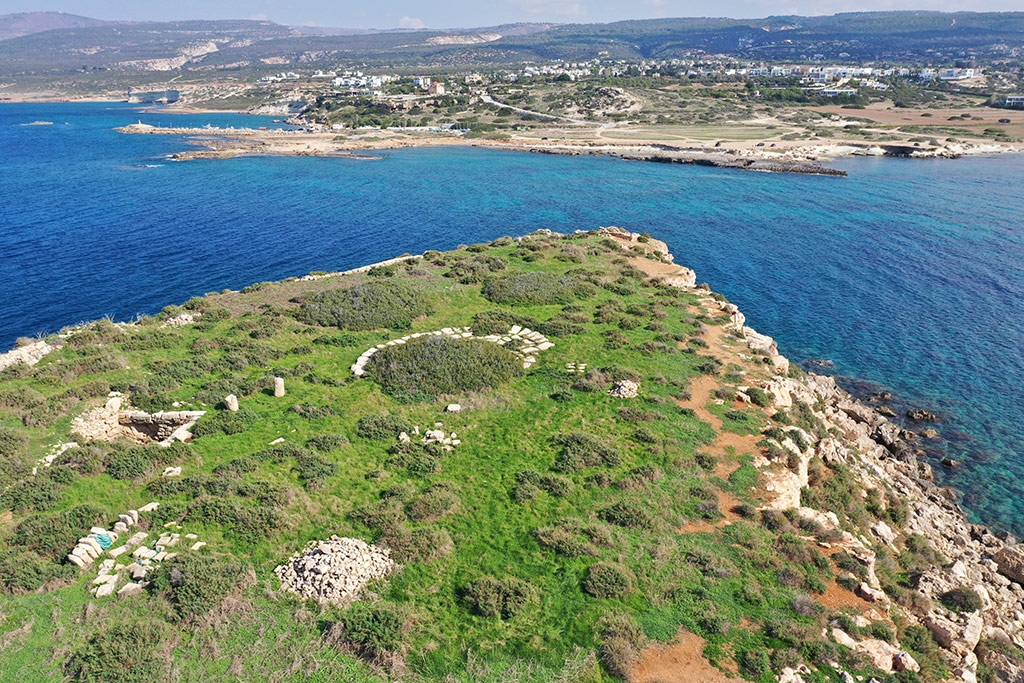
According to the Yeronisos website, long-term goals of the project include the planning of an ecological/archaeological park on Yeronisos, the establishment of a local museum/educational and cultural facilities at Agios Georgios-tis-Peyias, and the creation of an environmental/cultural footpath linking sites of interest along the western coast of Cyprus.
That was back in 2012. Since then, has anything happened? All I am aware of is the construction of the Cap St George Resort. I don't think that's what the Archaeologists had in mind though.
Now See The Film!
That concludes our look at Yeronisos Island. It contains a wealth of Historical information, and I am personally very glad they didn't build a Casino there!
Page 4 of 4


Related Blogs:
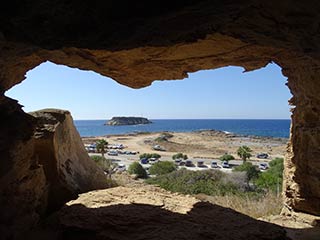
Cape Drepanum
It's time for another guest blog from Max. This time, he's been to the edge of the Akamas, to have a look at some of the caves at Cape Drepanum. Over to you, Max...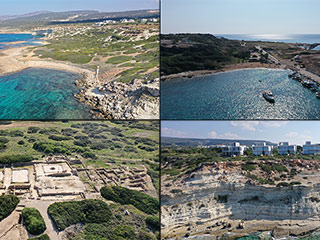
Agios Georgios From Above
Agios Georgios is a charming village that sits on the South West corner of Paphos next to the Akamas Peninsula. As well as a lovely harbour there are also some interesting caves in the cliffs, a lovely tavern and an Archaeological Site. In this article I fly our drone over the area to bring you a fresh perspective.Good Pages To Visit
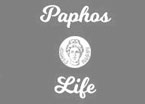
FB PagePaphos Life on Facebook
Like us on Facebook and stay notified of new blog posts.

FB PageOur Facebook Chat Group
Paphos Chat has been created for people who like our site and want to chat using Facebook. You can also easily upload photos of any size here. A lot of people are members of the Facebook chat group and the main forum. It's entirely up to you.
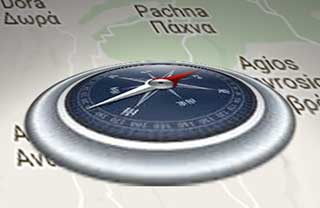
ListBlog Locations
Planning a day out? Then use our map of blog locations as a handy guide. Some of the places we visit our closer to each other than you might think, so take a look and start planning your next adventure...
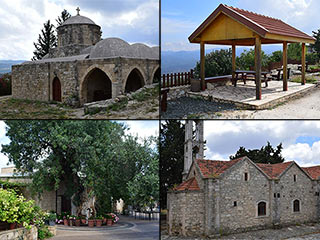
eBookCyprus Road Trip 01: the Kathikas - Panagia Loop
Let me take you on a journey around the region of Paphos, Cyprus. Starting at Paphos itself, we travel to Akoursos, then Kathikas, Kritou Terra and Simou. We continue past Lasa and Kannaviou, before taking in the delights of Panagia. Getting a bit more adventurous, we visit the abandoned villages of Statos and Agios Fotios, before passing through Choulou, Letymbou and Polemi, and rejoining the main Paphos - Polis road.
The route is suitable for all types of vehicle, and requires no off-roading. The guide contains about 130 photographs including shots of all the road signs you need to pay attention to, as well as some of the highlights you may experience along the way.
There are also several maps which will help you keep your bearings.
You can do this journey in a day, or you can break it up into chunks. You can also do it in reverse, to get some completely different views. It is entirely up to you.
